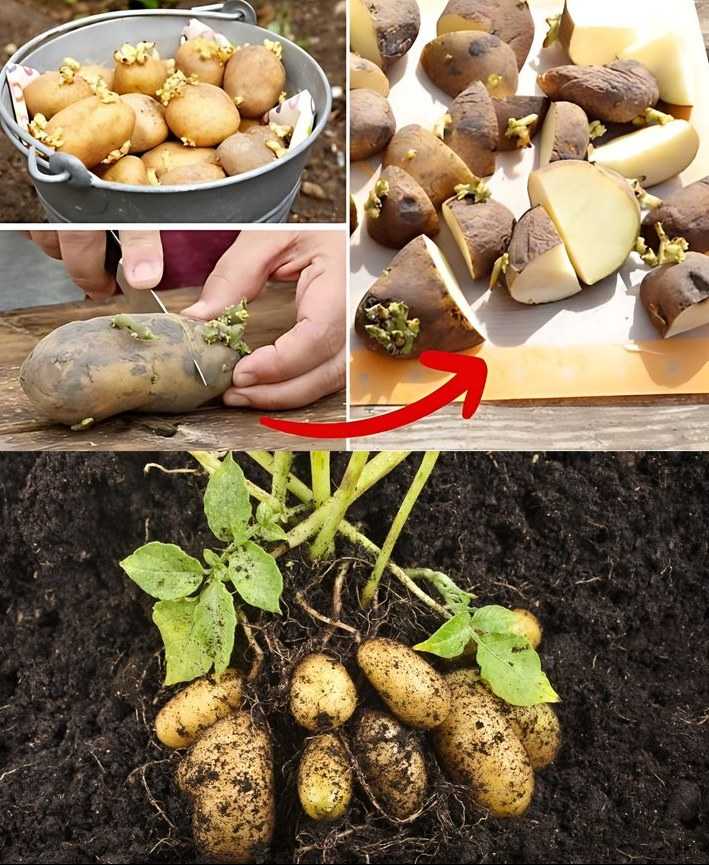ADVERTISEMENT
Why Trim Potatoes Before Planting?
Trimming or cutting seed potatoes before planting is a common practice among gardeners to maximize yield and encourage healthier growth. It’s not mandatory but offers several benefits for improving the efficiency and productivity of your potato crop. Here’s why trimming potatoes is a useful step and how to do it correctly.
Benefits of Trimming Potatoes Before Planting
1. Maximizes Seed Usage
Trimming large seed potatoes into smaller pieces allows you to plant more of them, effectively increasing the number of plants and potential yield from a single batch of seed potatoes.
2. Promotes More Shoots and Growth
Each piece of the potato (with an eye or sprouting bud) can grow into a new plant. Cutting the potato ensures that multiple plants can be grown from one seed potato, as long as each piece has at least one viable eye.
3. Reduces Risk of Disease
By trimming off damaged or rotting parts of a seed potato, you can ensure that only healthy, viable sections are planted. This minimizes the risk of spreading diseases to the soil and surrounding plants.
4. Improves Root Development
Smaller pieces allow the plant to focus its energy on producing roots and shoots rather than supporting a large tuber. This results in faster and more robust growth.
5. Balances Planting Depth
Trimming ensures that each seed potato piece is uniform in size, making it easier to plant at a consistent depth, which is crucial for even growth and yield.
How to Trim Potatoes Before Planting
1. Select the Right Seed Potatoes
Use certified seed potatoes that are disease-free and have at least 2–3 healthy eyes or buds.
2. Cut Into Pieces
Use a clean, sharp knife to cut large potatoes into smaller pieces. Each piece should:
Be about the size of a golf ball.
Contain at least 1–2 healthy eyes.
3. Let the Pieces Cure
Allow the cut pieces to dry and cure for 24–48 hours in a cool, dark, and well-ventilated area. This forms a protective layer over the cut surface, reducing the risk of rot and disease after planting.
